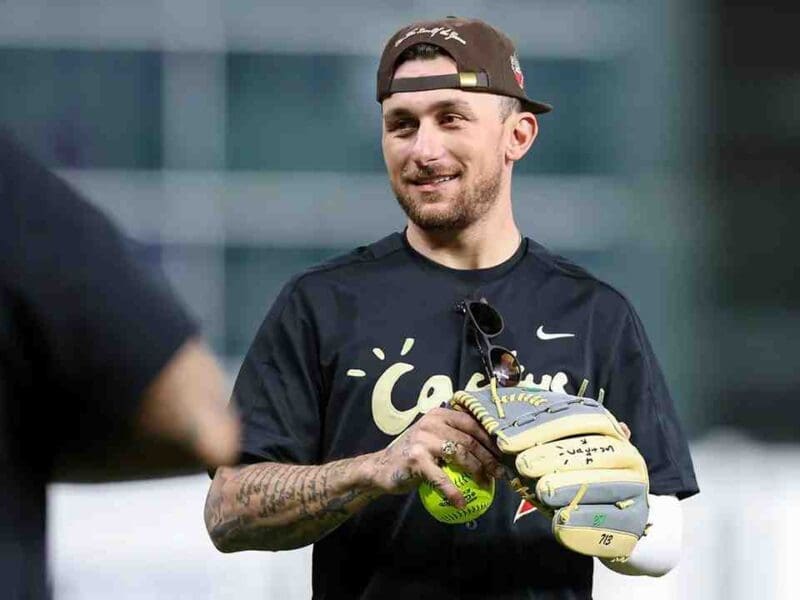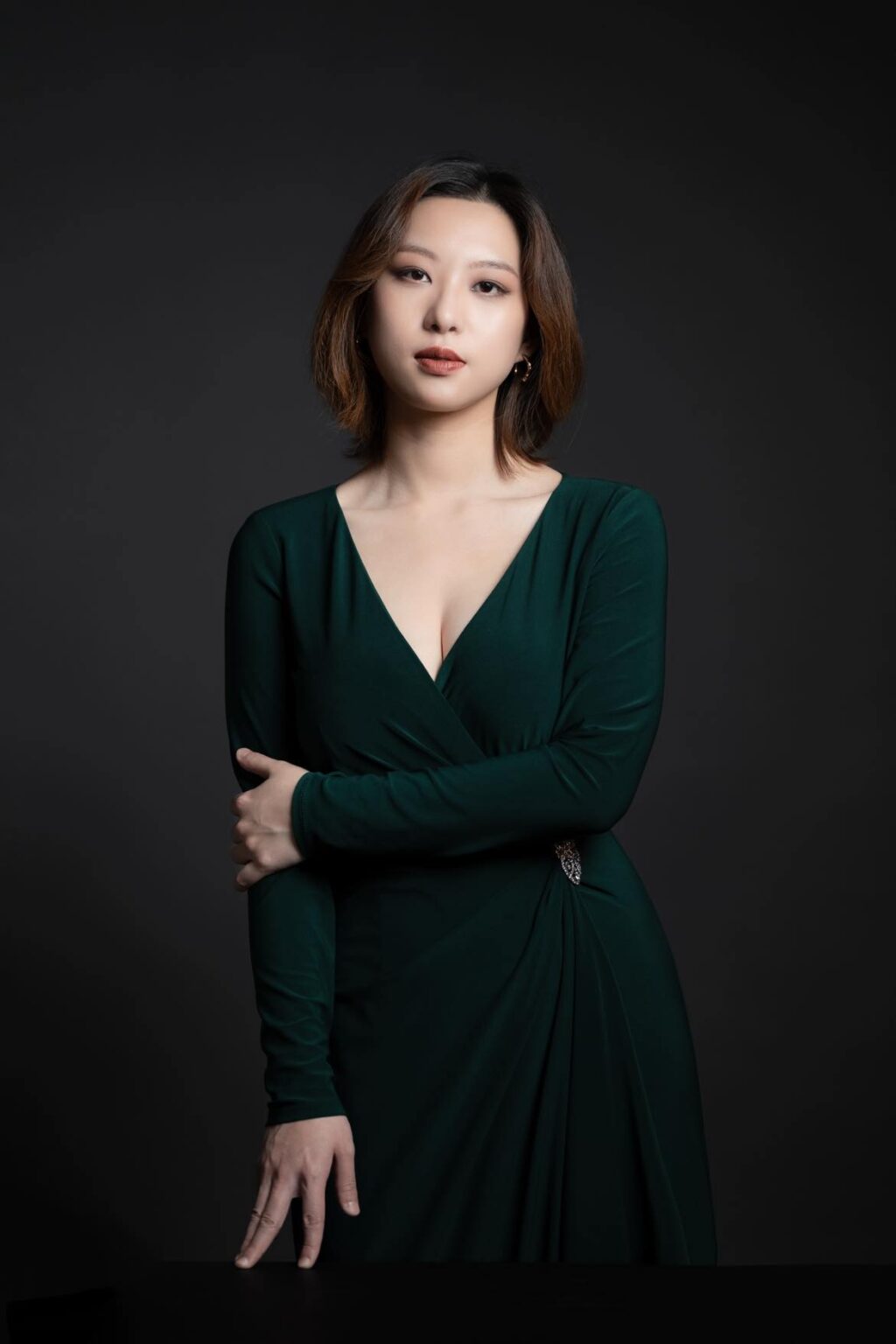
Ruoyang Xiang: From China to ‘The North Star New Music Festival’
Exploring the dynamic world of contemporary music through the lens of Ruoyang Xiang, an exceptionally talented pianist hailing from Anqing City, Anhui, China, offers a fascinating insight into the confluence of talent, training, and tenacity. As a laureate of prestigious competitions such as the MTNA 2024 National Chamber Music Competition and the 2021 Wideman International Piano Competition, Ruoyang has distinguished herself as both a brilliant soloist and a collaborative pianist. Her education, under luminaries like Menahem Pressler at the Indiana University Jacobs School of Music, complements her extensive performance resume which spans continents and musical styles. With her ensemble, Vinola, Ruoyang pushes musical boundaries, emphasizing 20th-century compositions and newer works, reflecting her innovative spirit. Currently, she enriches the musical community at Truman State University, sharing her skills and continuing to evolve as a pivotal figure in the classical music scene. We got very lucky and managed to sit down with Ruoyang Xiang to talk art and life in general.
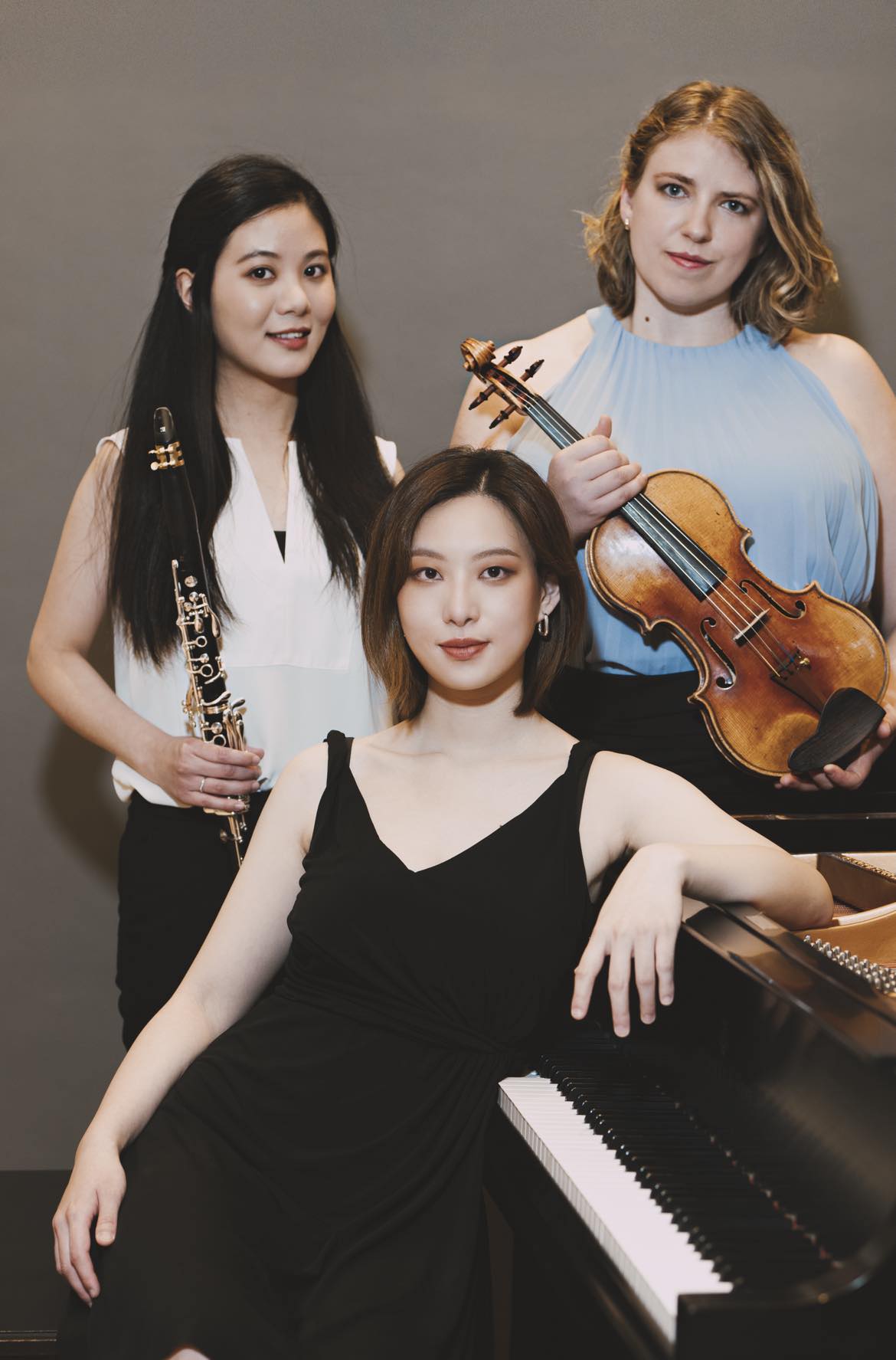
Could you share your earliest memory of falling in love with the piano? What drew you to this instrument?
I was introduced to music at a very young age and started playing the keyboard when I was eight. I was fascinated by the sound piano produces and the beautiful melodies and harmonies. After elementary school, I decided to go to a music middle school to pursue a career in music. I was listening to an album recorded by the well-known Russian pianist Sviastoslav Richter at the time, I am still greatly influenced by his interpretation which is full of imagination, and sensitivity.
Winning numerous competitions, such as the MTNA 2024 National Chamber Music Competition, must require significant preparation and resilience. How do you approach preparing for a competition?
In my experience, competing demands a great deal of concentration, commitment, and time management. Firstly I start by picking a repertoire that highlights my ability and demonstrates diversity. Then I arrange daily practice schedule and repertoire depending on how familiar I am with the pieces. For my trio, we have a limited amount of time for rehearsing because we live in different places, so it is important for us to learn our and each other’s parts very well before coming into a rehearsal.
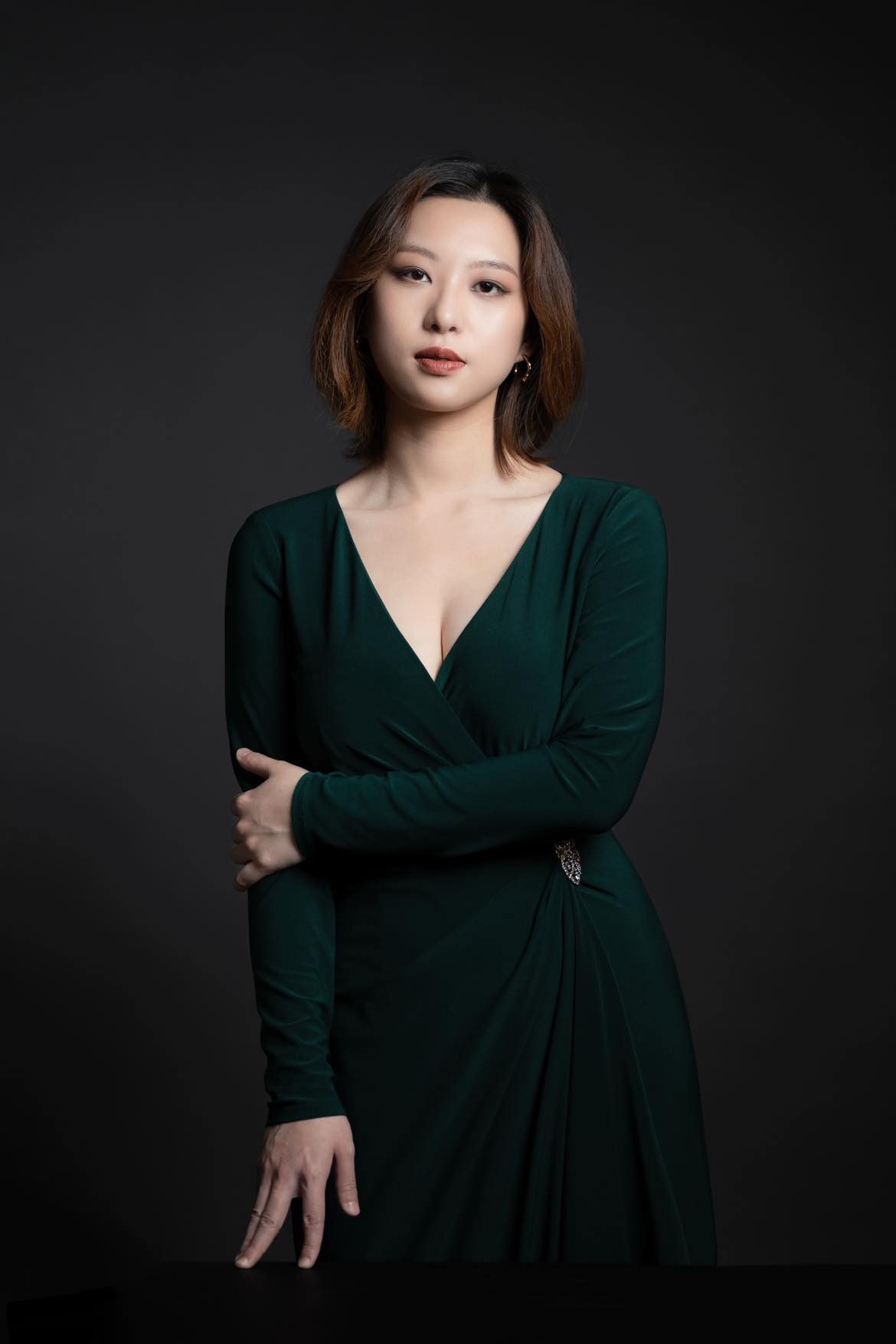
Your journey has taken you from Anqing City to prestigious music schools like the Boston Conservatory and IU Jacobs School of Music. How have these diverse cultural and educational environments influenced your musical style and philosophy?
I was able to establish a strong foundation, which aided in the development of my technique and discipline. I was fortunate to have had comprehensive training during my time in the music middle and high school in China which consisted of piano performance, ear training, and music theory. My training at The Boston Conservatory and Indiana University allowed me to have a deeper understanding of music and helped me develop into a more well-rounded musician who wants to express myself in music and engage t with the audience.
Could you tell us about the formation of your trio, Vinola? What was the inspiration behind choosing your fellow members, clarinetist Li-jie Yu and violinist Laurel Gagnon?
Our formation was inspired by the Verdehr Trio, the combination of piano, clarinet and violin is quate an uncommon setting. I was already friends with the clarinetist Li-Jie, and I also worked with Laurel on a project. Because they are both wonderful people and amazing musicians, I really loved working with them. After Li-Jie’s teacher informed her about The Verdehr Trio’s scholarship, she got in touch with me, and I invited Laurel to come along. We gave our debut performance at IU in 2022. We love playing with each other very much, not only do we get along very well, but we can always learn something from each other when we rehearse and perform.
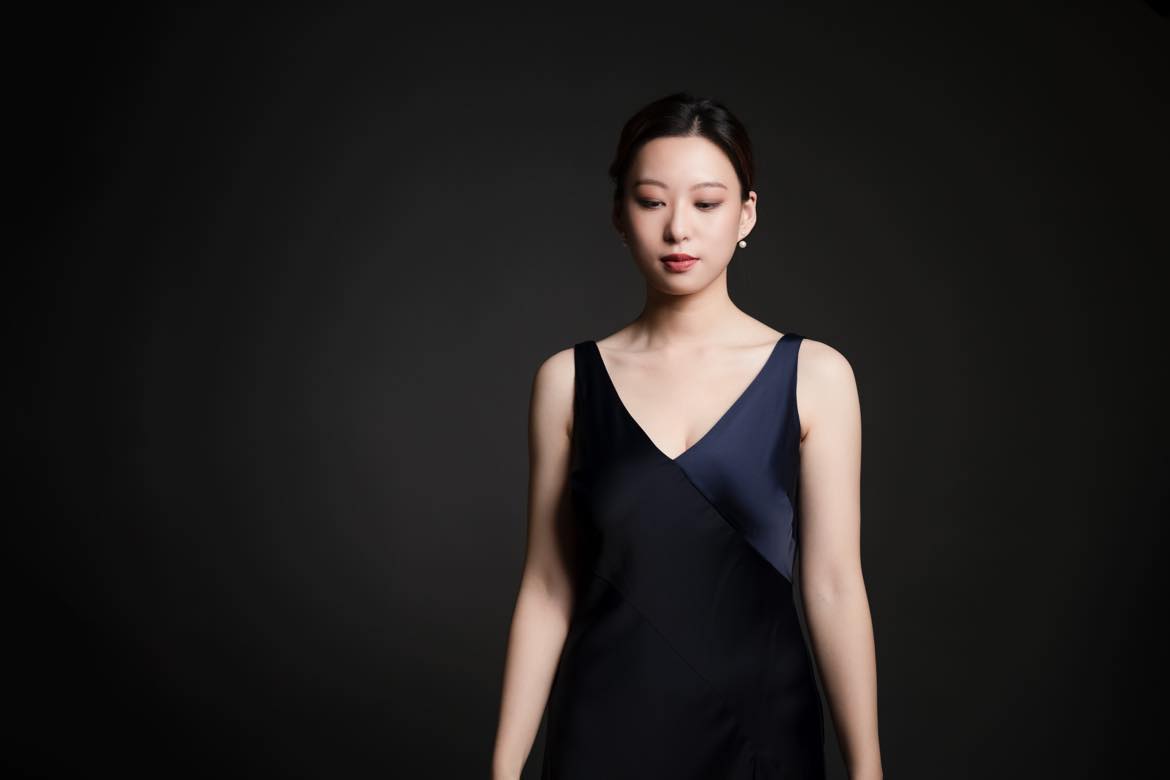
The Verdehr Trio Commission Project inspired Vinola. How does this project influence the music you create and perform with your trio?
More than 200 new compositions by modern composers, including Don Freund, Libby Larsen, David Ott, and William Bolcom, were commissioned by the Verdehr Trio. Their repertoire offers us a wide range of pieces that feature different styles. As a classical musician, I played a lot of pieces from the Baroque, Classical, Romantic and Impressionism periods, so it was a great opportunity for me to delve into contemporary pieces and discover repertoire from our era.
Vinola focuses primarily on music from the 20th century and beyond. What draws you to this particular era, and are there specific composers who inspire you?
Since the combination of piano, clarinet and violin is not common, there aren’t a lot of repertoire written for this context until the 20th century. The repertory was enlarged by the Verdehr Trio’s commissioned pieces. We can learn more about contemporary genres and living composers thanks to the selection of repertoire. Additionally, we hope to encourage more commissions and pieces by living composers. Learning pieces like William Bolcom’s “Trio,” which is intense and challenging, Guillaume Connesson’s “Techno-Parade,” which demonstrates extended technique, and Libby Larsen’s “Slang,” which blends jazz, contemporary, and funk, was a lot of fun.
As a collaborative pianist, what do you find most rewarding about working with other musicians compared to solo performances?
It is a different way to experience music when I work with other musicians. Not only must I master my portion, but also theirs. I just have to focus on balancing my own sound while I am performing solo compositions. Playing in a group requires me to be aware of the collective sound effects and adjust my own sound balance accordingly. Playing with other musicians is really invigorating because it allows me to see the music from a different angle and is satisfying to hear it from their point of view. Creating music with other musicians is like having a conversation. A very sensitive musician will work with us and respond to it when we perform something unexpectedly on stage based on how we are feeling at the moment. When I work with other people, I really value the degree of connection.
Can you describe a particularly memorable performance or project that has had a significant impact on your career or artistic journey?
Using music to make an impact outside the concert hall is an important cornerstone of our trio’’s philosophy. Our first community event, and our second-ever performance, took us to the tiny town of Shoals, Indiana (population: >700 people). We were left with the memorable image of three old farmers gleefully tapping work boots along to the rock rhythms of Libby Larsen’s “Slang.” The overwhelming number of children in the audience surprised us, as did a mother’s post-concert exclamation that she had no access to classical music events for her children. This powerful example of inaccessibility in classical music inspired us early in our ensemble’s history to pursue community-centric projects and organizations, providing performances in nursing homes, libraries, and churches. Over the next few years, we hope to share our music with diverse audiences through ever-evolving, creative presentations; to continue to pursue high levels of excellence in both performance and in philosophy; and to develop lasting relationships with like-minded individuals at the intersection of classical music and community outreach.
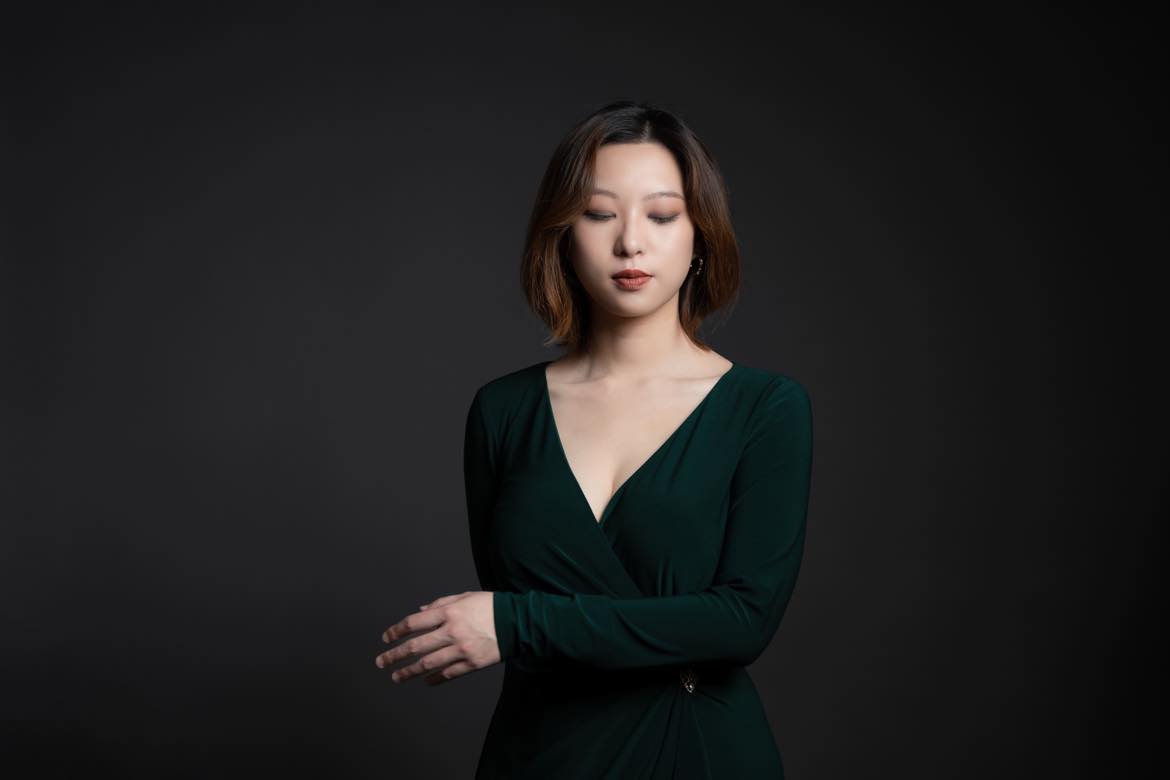
Your academic achievements are impressive. How has studying with notable teachers like Jonathan Bass and Menahem Pressler shaped your approach to music?
Being able to learn with Mr. Pressler and Dr. Bass was a great blessing for me. They have raised the bar for me both as musicians and as a person. Their love and commitment to music have motivated and impacted me to keep improving my skill. I wanted to be a teacher like them because of their kindness and encouragement. Dr. Bass’ playing has always been powerful and inspirational. His instruction was straightforward, supportive, and beneficial. Mr. Pressler made me more aware of musical sensibility. I experimented with all the amazing musical ideas he gave me, and I studied various touches and articulations under his supervision. My goal is to become a musician who is always honing my skill, continues to be passionate about performing and teaching, and provides students with discipline, support, and inspiration.
How do you balance your roles between being a performer and an educator at Truman State University?
The majority of my responsibility at Truman State University is rehearsing with students, and performing with them and the faculty. I offer my advice in rehearsal with students. I focus on completing high-priority tasks first and allocate time to address less urgent matters as needed. I also plan the schedule in advance to anticipate busy periods, deadlines, and commitments to other performing activities.
In today’s digital age, how do you utilize social media platforms like Instagram to engage with your audience and the broader music community?
I usually post photos, videos, stories, and reels that showcase my music, behind-the-scenes moments, rehearsals, and performances. Additionally, I use it to promote music events through platforms like Instagram and Facebook. In the future, I would love to collaborate more with other musicians on platforms and cross-promote each other’s content.
What challenges have you faced as a musician during the COVID-19 pandemic, and how have you adapted to continue your musical activities?
Everyone was going through a difficult period, and since there were not many possibilities to perform at the time, I concentrated on my studies and practice. I was teaching music courses and had lessons online using Zoom. Fortunately, I could still collaborate with some of my fellow musicians in town.
Could you share insights into your practice routine? How do you keep your playing at such a high level of excellence?
Music-making is a multiple-step process for me. Critical thinking, and analyzing are just as important as practicing. I would begin by researching the work to understand about its historical context in order to learn its style correctly. Listening and analyzing the piece gives me the chance to understand the piece’s mood and form. Keeping this in mind, I will practice by visualizing a sound and determining the appropriate approach for it. Several different approaches to practice, such as practicing slowly, varying rhythms, or even singing, enabled me to tackle the difficult passages. And lastly, I find that it helps me also to perform for teachers, colleagues, or friends as much as possible before going on stage.
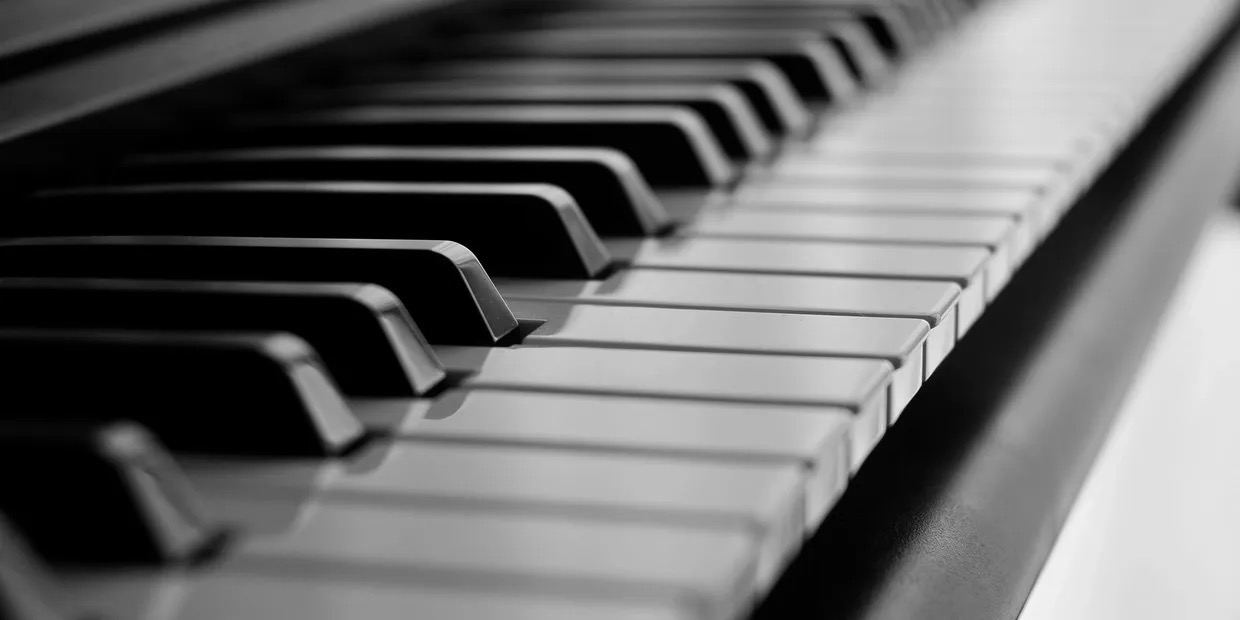
What advice would you give to young aspiring musicians who look up to you and wish to pursue a career in music?
- Dedicate time every day to practice and improve your skills. Whether it’s learning new techniques, or refining your instrument proficiency, consistent practice is key to growth.
- Stay humble and be open to feedback from teachers, mentors, and fellow musicians. Continuously seek opportunities to learn and expand your musical knowledge.
- Collaborate with other musicians and professionals. Networking is essential in the music industry, so attend events, join communities, and connect with like-minded individuals.
- While it’s important to learn from others, strive to develop your own unique style and sound. Don’t be afraid to express yourself creatively.
- The music industry can be tough, and rejection is inevitable. Embrace challenges as opportunities for growth and keep pushing forward, even when faced with setbacks.
- Confidence and self-belief are essential for facing the challenges of the music industry and achieving your goals. Trust in your abilities and keep striving towards your goals.
Looking ahead, are there any upcoming projects or goals you are particularly excited about?
The North Star New Music Festival is an annual contemporary music and arts festival that invites contemporary composers to showcase their music. I am excited to work with and collaborate with my colleagues at the festival in the autumn of 2024. My trio is preparing for a CD featuring works by female and Asian composers. In addition, my trio and I would be touring Connecticut in the fall of 2024 and performing in various locations. I am planning to take part in masterclasses and to give performances in several concert series.







